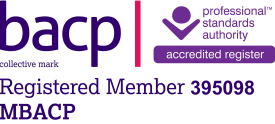My clients choose the path, I walk beside them
Counselling and therapy for individuals
Welcome, and thank you for visiting Hidden Thoughts Counselling
My name is Lori Donohue, and I am an integrative counsellor. I offer person centred, holistic therapy tailored to suit your needs. We are all unique, and one type of therapy does not suit us all. I have extensive experiences in creatively working with my clients to find a therapeutic approach that enables my clients to feel safe, so that positive change can occur.
Life brings many challenges, and it is understandable that sometimes we might look for support in facing them. I have myself faced my own set of challenges along my journey such as, Divorce, Menopause, Neurodiversity and Dementia. I believe these challenges have given me a wider appreciation for life's struggles
“Lori is a great therapist, and I feel very comfortable to talk about everything what is in my mind and in my heart without a mask and she is helping as much she can. She is extremely supportive and professional in what she is doing. I am so happy that I can contact her whenever I want, she is responding fast and helpfully. Thousand thanks for this.” With nice regards SG
As a counsellor, my role is to provide space and guidance to help you on your journey of self-discovery; to enable you to examine your life and make new, meaningful choices within it.
My background is in the care industry, so counselling became a natural path to take. I am a registered member of the British Association of Counsellors and Psychotherapists (BACP). I am committed to the highest standards in my practice, both professionally and ethically. If you would like to read BACP's Ethical Framework, please click here.
I offer a chance to reflect on the difficulties or problems you are experiencing in a safe and confidential environment, with someone outside your daily life. Together, we can explore your situation in a way that leads to fresh perspectives - and perhaps a new understanding of yourself. Counselling isn’t about giving you solutions or advice, but empowering you to make your own changes.
My approach to therapy is person-centred. This is a non-judgmental way of working, where the counsellor creates the right conditions to help someone increase their self-awareness; to move towards - and reach - their fullest potential.
About me
Training to be a therapist was one of the best decisions I’ve ever made. The work isn’t easy, but it’s hugely rewarding. One of the most enjoyable aspects is seeing the change in my clients, and I believe everyone has the potential to live their best life. , and being part of the birth of new, supportive and caring relationships that continue long after therapy has ended.
My therapy style is warm and interactive. I prefer to work to build a relationship of trust with my clients, as I believe the real work can begin. I believe in treating everyone with respect, sensitivity, and compassion, and I do not believe in stigmatising labels.
My approach combines cognitive-behavioural, humanistic, psychodynamic and Person Centred therapy, gestalt and creative arts therapies. No one size fits all. I will tailor our dialog and treatment plan to meet your unique and specific needs. I will listen and respond to the way you would like to work. I am happy to chat before booking a session as I think you, the client, needs to feel comfortable with your therapist.
Please contact me for an informal chat, or message me. I look forward to starting our journey.

Speak in Confidence
Counselling takes place in a safe space, where you can meet with someone who will listen with sensitivity and empathy - and without judgement. In the therapy space thoughts and feelings can be expressed freely and in confidence.

A problem shared...
Trouble with a relationship; anxiety or panic attacks; mood swings or depression - many people face difficulties in their everyday lives that can be hard to get on top of. Counselling gives us a set of tools we can use to help gain a better understanding of what’s causing these problems - and how you can move towards managing or resolving them.

Make better, healthier new choices
Working together I can help you gain greater insight into the difficulties you are facing, help you understand why you act or react to them the way you do, and see how you can start to make better, heathier choices moving forward.
What issues can counselling help with?
People seek my help for help a wide range of troubles. I've listed below a few of the more common difficulties that can be eased by seeing a counsellor:
Feelings of anxiety or stress
Panic attacks
Relationship problems
Grief, loss or bereavement
Problems with addiction
Trauma and post-traumatic stress
Abuse
Depression
Low confidence or self-esteem
Anger management
Issues relating to sexuality
Difficulties at work or in retirement
Problems with family or school life
Get in touch
You can contact me by booking a free session on my calendar or email me directly through lori@hiddenthoughtscounselling.co.uk
You can also call me on 07359 519403 if you would prefer to leave a message or speak to me first. I am happy to discuss any queries or questions you may have prior to arranging an initial appointment. I aim to respond to all enquiries within 24 hours during working days.
All enquires are usually answered within 24 hours, (48 hrs during weekends), and all contact is strictly confidential and uses secure phone and email services.
Frequently asked questions
Counselling is usually a good way to help with a current problem; something that can be discussed and - hopefully - resolved within a limited number of sessions. Over a certain number of weeks the understanding of the problem improves and away forward becomes clear. Therapy often describes work that goes a bit deeper, towards more substantial life issues and problems having a deeper effect on the client’s life. Therapy often requires a long-term approach, so the number of sessions can be open-ended.
Which option is most suitable depends on the client and the difficulties they are facing. In some cases counselling works well as an ongoing, longer-term option - or therapy can manage to resolve an issue in just a few sessions.
How long a period of counselling lasts will vary from person to person and depend on the depth of the issues they are facing. For some people a couple of sessions helps to bring their problems into focus, and they feel ready to move forward; other problems may require more of an open-ended approach.
Before we begin any work we will agree on the number of sessions we’ll undertake, and at the end of that number review our progress. As long as we both agree further therapy will be of benefit to you, sessions can continue.
My aim is to offer a first appointment - known as an initial assessment - within 1-2 weeks. Then we would arrange a set number of counselling sessions to take place at the same time every week, that is convenient for you and where I have availabity. How quickly these sessions can begin will depend on the availabity of that free ‘slot’.
Everything that is said within the counselling room is private - this is one of the main ways counselling and therapy differ from talking to a friend or relative. Once you are comfortable with the format of weekly sessions and the safe space they provide, you will find the freedom to speak in confidence is of great value.
Note that there are some situations where you may be a risk to yourself or others, and there the law requires that I notify an authority; in these cases I may not be able to keep total confidentiality. Breaking confidentiality is very rare though, and only happens after the person concerned has been informed.
Usually I am asked this question by people who are nervous about entering into counselling, or when they are looking for support in coming to see a therapist. This anxiety is understandable, but a key aspect of therapy is that you should feel free to talk about any issues you feel are important to you. Having someone else with you who can be connected those issues makes this opening-up more difficult, so for this reason I do not see clients accompanied by friends or family.
© Lori Donohue
Powered by WebHealer

